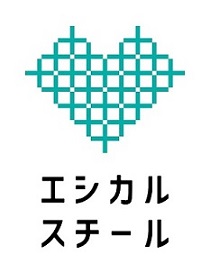Ethical Steel—Our Long-Standing Product, Newly Reimagined in Our 35th Year
With the global population now exceeding 8 billion, the world is transitioning to an era in which corporate activities are assessed for their ethics in line with demand to reduce the environmental burden caused by waste and pollutants, and to create a circular economy in which products and raw materials are recycled.
Since 1988, the Kyoei Steel Group has been manufacturing steel products while processing waste. We have long been engaged in the business of recycling resources by transforming disused iron and steel products into new products, while reducing environmental burden by utilizing the high temperatures generated by EAFs to fully detoxify waste materials through melting. With regard to the types of waste we process, our journey began with medical waste such as syringes, and we have continued to take on the challenge of solving further social issues, such as expanding the range of waste processed to include asbestos and other difficult-to-process waste. Based on social changes together with the spread of these new values, in May 2024, we began sales having rebranded our steel products manufactured through such EAF waste processing as Ethical Steel.
[Origin of the ethical steel logo]
Rebar is the invisible hero serving as the skeleton inside concrete and other structures. The logo visually illustrates the idea of ethical steel spreading seamlessly throughout society in Japan, overseas, and across the entire globe as if this rebar were to form an expansive mesh around it. The heart shape expresses the Kyoei spirit, the inner passion that underlies Kyoei Steel. More specifically, it expresses our employees’ attitude and pride toward ethical work, their concern for the environment, their spirit of facing social issues, and their aspiration to support Japan through the steel business.
Detoxification and recycling of metal waste with attached toxic substances
Kyoei Steel launched an initiative in partnership with Kajima Corporation to detoxify and recycle metal waste with attached toxic substances such as lead paint and asbestos, which is created as part of the disassembly of buildings, thus helping realize the circular economy.
Lead paint and asbestos were widely used as construction materials and insulation due to the former having antirust and hardening properties, and the latter having heat resistance, insulation and chemical resistance properties. Since the 1990s, lead and asbestos have been found to have harmful effects on human health and the environment, with the use of these materials now being restricted or forbidden. Many buildings made using these materials are entering the period when they are due to be rebuilt. As a result, there is demand for disassembling such metals with attached toxic substances in a way that protects the health and safety of technicians and of the worksite and surrounding environment, and for making productive use of the recovered materials.
Kyoei Steel is the only company in Japan officially authorized as an EAF manufacturer to process both lead and asbestos. By fully detoxifying waste materials through melting in EAFs, which have low CO2 emissions, and reusing the metal parts (iron) as inputs for our Ethical Steel product, we achieve both the appropriate processing of toxic substances and the establishment of a steel resource cycle. Going forward, with the creation of waste metals with attached toxic substances expected to grow as more structures are dismantled, Kyoei Steel is expanding the number of Japanese sites licensed to process such industrial waste beyond our current Yamaguchi Division facility.
Holding information sessions for business partners on Ethical Steel
In July 2025, we held information sessions on Ethical Steel over six days targeting trading companies and special agents responsible for distributing Kyoei Steel products. Including online participants, a total of 168 participants took part in the sessions. The information sessions aimed to promote understanding of Ethical Steel, covering the Company’s strengths in combining the operation of the steel business and the material recycling business, the aims of the Ethical Steel branding, how Ethical Steel can be ordered, and the process for issuing Ethical Steel certification. In the Q&A portion of the sessions, we received a wide variety of questions from participants, beginning with details related to the ordering and delivery of Ethical Steel. Going forward, we will conduct awareness raising measures for steel buyers with the aim of expanding orders for Ethical Steel.
EPD program uses Life Cycle Assessment (LCA) methodology. It is a system for quantitatively visualizing the environmental data of a product across its entire life cycle from the extraction of resources to its manufacture, distribution, use, and disposal or recycling.
We employ the EcoLeaf Environmental Labeling Program run by the Sustainable Management Promotion Organization (SuMPO) for four products—rebars, structural round bars, equal angle bars, and flat bars. U.S.-based Vinton Steel LLC has gained certification for rebars under the EPD program run by SCS Global Services.
With such systems in place, customers are able to evaluate the products they are using for environmental impact quantitatively and objectively, or use the information to make an informed purchase of eco-friendly products.
In buildings, when a certain amount of the products being used are certified through an environmental declaration, there is additional
merit in applying for LEED certification. LEED is the U.S.-based, globally recognized green rating system for buildings and cities, and such products can be an asset to customers who wish to acquire LEED certification.



